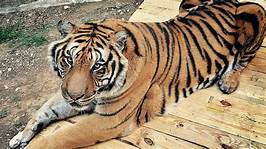Can You Have an Anteater as a Pet?
Anteaters are fascinating creatures that have captured the imagination of many. With their long, sticky tongues and unique appearance, they can be an alluring potential pet. However, before you decide to bring an anteater into your home, it's essential to understand the complexities involved in caring for one. This article will explore the challenges and considerations associated with keeping an anteater as a pet, helping you make an informed decision.

Lifespan and Care Requirements
Anteaters have a relatively long lifespan, with some species living up to 20 years. This means that you should be prepared for a long-term commitment when you adopt an anteater. Additionally, anteaters have specialized dietary and habitat needs that can be challenging to meet in a domestic setting. They require a constant supply of live insects, and their enclosures must be meticulously maintained to ensure proper temperature and humidity levels.
Legal and Ethical Considerations
In many countries, it is illegal to own an anteater as a pet. Additionally, some species are endangered or threatened, making it unethical to keep them in captivity. Prior to considering adopting an anteater, research the legal and ethical implications in your area to ensure you are not contributing to the decline of these fascinating creatures.
Temperament and Socialization
Anteaters are generally solitary animals and do not do well in social situations. They can become stressed or aggressive if they feel threatened or confined. While some anteaters may become accustomed to human interaction, they typically prefer to spend their time alone. This lack of social interaction can be detrimental to their well-being and lead to behavioral problems.
Dietary Needs
Anteaters have specialized dietary needs that can be challenging to meet in a domestic setting. They primarily consume live insects, including ants, termites, and beetles. Providing a consistent supply of these insects can be expensive and time-consuming. Additionally, anteaters require a variety of vitamins and minerals to maintain good health, which can be difficult to obtain from their diet alone.
Habitat Requirements
Anteaters need a spacious enclosure that provides them with plenty of room to move around. Their enclosure must be kept at a specific temperature and humidity level, and it must be meticulously cleaned and maintained to prevent the spread of disease. Additionally, anteaters require access to an outdoor space where they can dig and forage for food.
In conclusion, while anteaters may seem like fascinating and exotic pets, the decision to bring one into your home should not be taken lightly. It's essential to consider the challenges associated with their care, including their long lifespan, specialized dietary needs, and unique habitat requirements. Additionally, legal and ethical considerations should be taken into account. If you're considering adopting an anteater, thorough research and a commitment to providing the best possible care are necessary to ensure the well-being of these remarkable creatures.
Declaration: All article resources on this website, unless otherwise specified or labeled, are collected from online resources. If the content on this website infringes on the legitimate rights and interests of the original author, you can contact this website to delete it.




